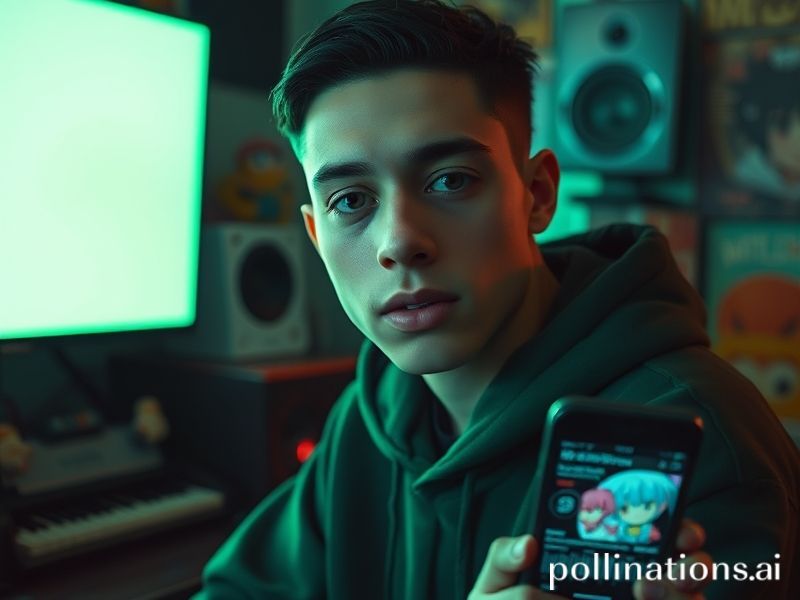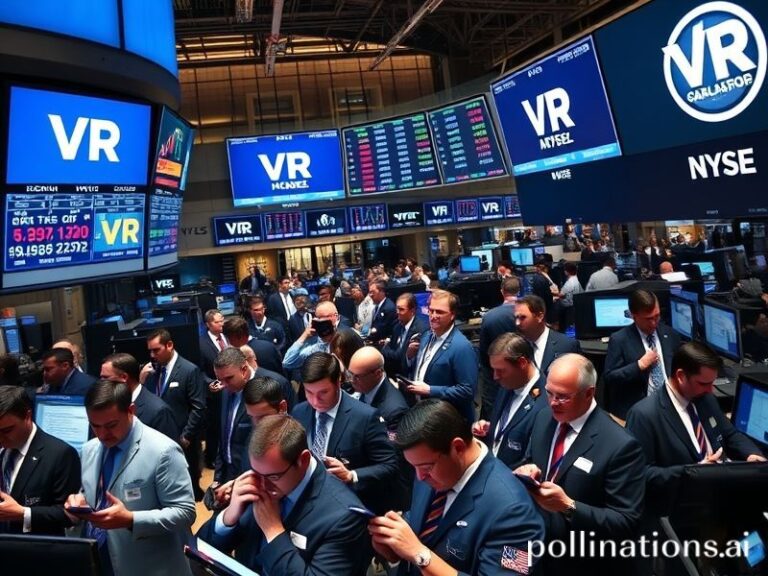Teenage Heartbreak Goes Global: How d4vd’s Bedroom Beats Built a Multi-Million Dollar Empire
**The Global Arithmetic of Heartbreak: How a Teenager’s Diary Became a Multi-Million Dollar Empire**
In the grand casino of modern capitalism, where trauma is currency and vulnerability trades at premium rates, 18-year-old d4vd has managed to parlay bedroom heartbreak into a net worth that would make small-nation treasury ministers weep into their spreadsheets. The Houston native—born David Burke to parents who presumably hoped he’d become something sensible like an accountant—has reportedly amassed somewhere between $2-4 million by turning his teenage angst into lo-fi anthems for the chronically online.
While the exact figure remains as elusive as genuine emotion in a TikTok comment section, what’s crystalline is that we’ve collectively decided a child who started making music because his Xbox broke represents the new face of international commerce. From Jakarta to Johannesburg, his breakout hit “Romantic Homicide” soundtracks the universal experience of young heartbreak—a peculiar form of globalization where emotional devastation becomes the great equalizer, transcending borders like a particularly melancholy passport.
The economics here are almost poetically absurd. A teenager records songs in his sister’s closet—presumably between homework assignments and existential dread—and suddenly finds himself wealthier than most adults will ever be, regardless of their advanced degrees or “real jobs.” It’s the kind of wealth redistribution that would make socialists weep, not because it’s unfair, but because it’s so randomly, catastrophically arbitrary.
What makes this particularly delicious is how d4vd’s success story has become the new American Dream™ export, a updated version where instead of pulling yourself up by bootstraps, you monetize your mental health crisis for streaming revenue. The developing world, rather than receiving agricultural subsidies or infrastructure investment, gets a teenager’s breakup album as its primary American import. Take that, cultural imperialism.
The global implications are staggering. While traditional economies struggle with inflation, supply chain disruptions, and the occasional coup d’état, the digital music economy has created a parallel universe where heartbreak is a growth industry. Central banks might want to consider adding “teenage melancholy” to their reserve currencies—it’s certainly more stable than crypto and generates more predictable returns than most emerging markets.
From Seoul to São Paulo, aspiring musicians now understand that technical proficiency is secondary to authentic vulnerability. Why spend decades mastering an instrument when you can simply record your diary entries over a beat you found on YouTube? It’s democratization at its most democratic—or its most nihilistic, depending on your perspective and how much you paid for music school.
The cruel irony, of course, is that d4vd’s wealth accumulation coincides with a global mental health crisis among his exact demographic. While he profits from teenage sadness, actual teenagers worldwide struggle with unprecedented rates of anxiety and depression. It’s a perfect economic ecosystem: generate the problem, monetize the solution, repeat until billionaire—or at least until you can afford therapy.
What’s perhaps most telling is how quickly we’ve normalized this trajectory. A teenager becomes a millionaire by recording songs about feelings he’s too young to properly process, and we barely blink. We’ve accepted that in our current iteration of civilization, this makes perfect sense—like accepting that billionaires race each other to space while children starve, or that we carry supercomputers in our pockets primarily to argue with strangers.
As d4vd’s net worth continues its upward trajectory, buoyed by a generation that treats emotional vulnerability like a tradable commodity, we might reflect on what exactly we’ve built here. In the marketplace of human experience, heartbreak is now a blue-chip stock, teenage bedrooms are Wall Street trading floors, and we’ve all become investors in the mutual fund of collective melancholy.
Welcome to the future—please deposit your feelings at the door, and don’t forget to like and subscribe.







